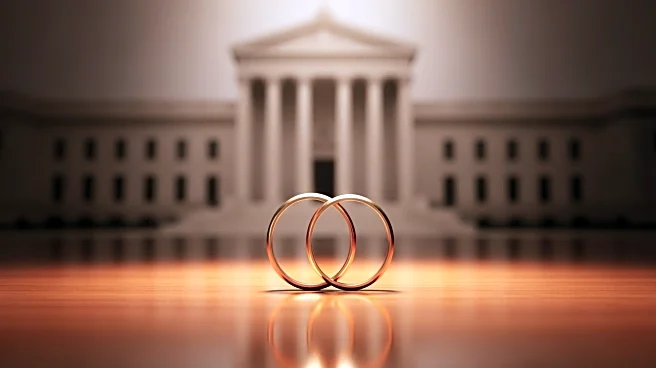What's Happening?
The Supreme Court has rejected an appeal to overturn its landmark decision legalizing same-sex marriage across the United States. The appeal was brought by Kim Davis, a former Kentucky court clerk who
refused to issue marriage licenses to same-sex couples following the 2015 Obergefell v. Hodges ruling. Davis sought to overturn a lower court's order requiring her to pay damages and attorney fees to a couple she denied a marriage license. Despite dissenting opinions from some justices, the court maintained its stance, reinforcing the legal status of same-sex marriage.
Why It's Important?
The Supreme Court's decision to uphold the legalization of same-sex marriage is a significant affirmation of LGBTQIA rights in the United States. It ensures that same-sex couples continue to have the legal right to marry, a critical aspect of equality and civil rights. This decision also sets a precedent for future cases involving marriage equality, reinforcing the court's commitment to upholding the rights of marginalized communities. The ruling has implications for social policy and the ongoing dialogue around civil rights and equality in the U.S.
What's Next?
With the Supreme Court's decision, same-sex marriage remains protected under federal law, providing stability and assurance to couples across the nation. However, ongoing debates and legal challenges related to LGBTQIA rights are likely to continue, as advocates push for broader protections and recognition. The decision may also influence legislative efforts at the state level, as lawmakers consider policies that align with the court's ruling. Civil rights organizations will continue to monitor developments and advocate for comprehensive equality measures.










